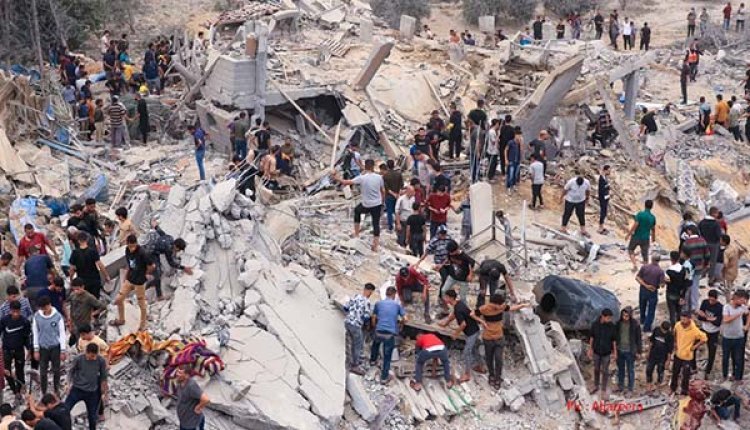Israel’s Actions in Gaza and Lebanon: A Strained Relationship with Global Oversight
U.S. espouses values of human rights and the rule of law, its support for Israel often contradicts these principles.

In recent years, Israel's military actions in Gaza and Lebanon have drawn intense scrutiny and condemnation from various corners of the international community. The humanitarian crisis in Gaza, exacerbated by military operations such as Operation Protective Edge, has resulted in substantial civilian casualties and widespread destruction of infrastructure. Reports indicate severe shortages of essential supplies, healthcare, and clean water, leading to a dire situation for the population.
Disregard for International Oversight
Despite ongoing discussions and resolutions from entities like the United Nations and NATO, Israel's actions appear increasingly arbitrary, often disregarding the recommendations aimed at de-escalating tensions and protecting civilian lives. This lack of compliance raises questions about the effectiveness of these organizations in enforcing international norms and maintaining peace. Israel seems to act with a degree of impunity, operating independently of the directives issued by global bodies.
The Role of U.S. Support
Compounding this issue is the unwavering support that the United States provides to Israel. With significant military and financial aid, the U.S. bolsters Israel’s defense capabilities, allowing it to continue operations without fear of immediate repercussions. While framed within a shared commitment to democracy and security, this support effectively enables actions that many consider violations of international law, contributing to the ongoing cycle of violence and suffering.
The Paradox of American Values
The complexities of the U.S.-Israel relationship highlight a troubling paradox. While the U.S. espouses values of human rights and the rule of law, its support for Israel often contradicts these principles. As Israel continues its military campaigns, the U.S. finds itself in a precarious position, torn between its strategic alliance and its moral obligations to uphold international law and human rights.
Conclusion: A Call for Reevaluation
In conclusion, Israel's actions in Gaza and Lebanon, characterized by military aggression and a disregard for international oversight, reflect a broader crisis in global governance. The inability of the UN and NATO to influence Israeli policies, combined with the U.S.’s staunch support, raises critical questions about accountability and the pursuit of peace in the region. As long as these dynamics persist, the prospects for lasting peace and the protection of innocent lives remain dim, necessitating a reevaluation of the international community's approach to conflict resolution and humanitarian advocacy.
by Mohammad Ismail, Editor

















